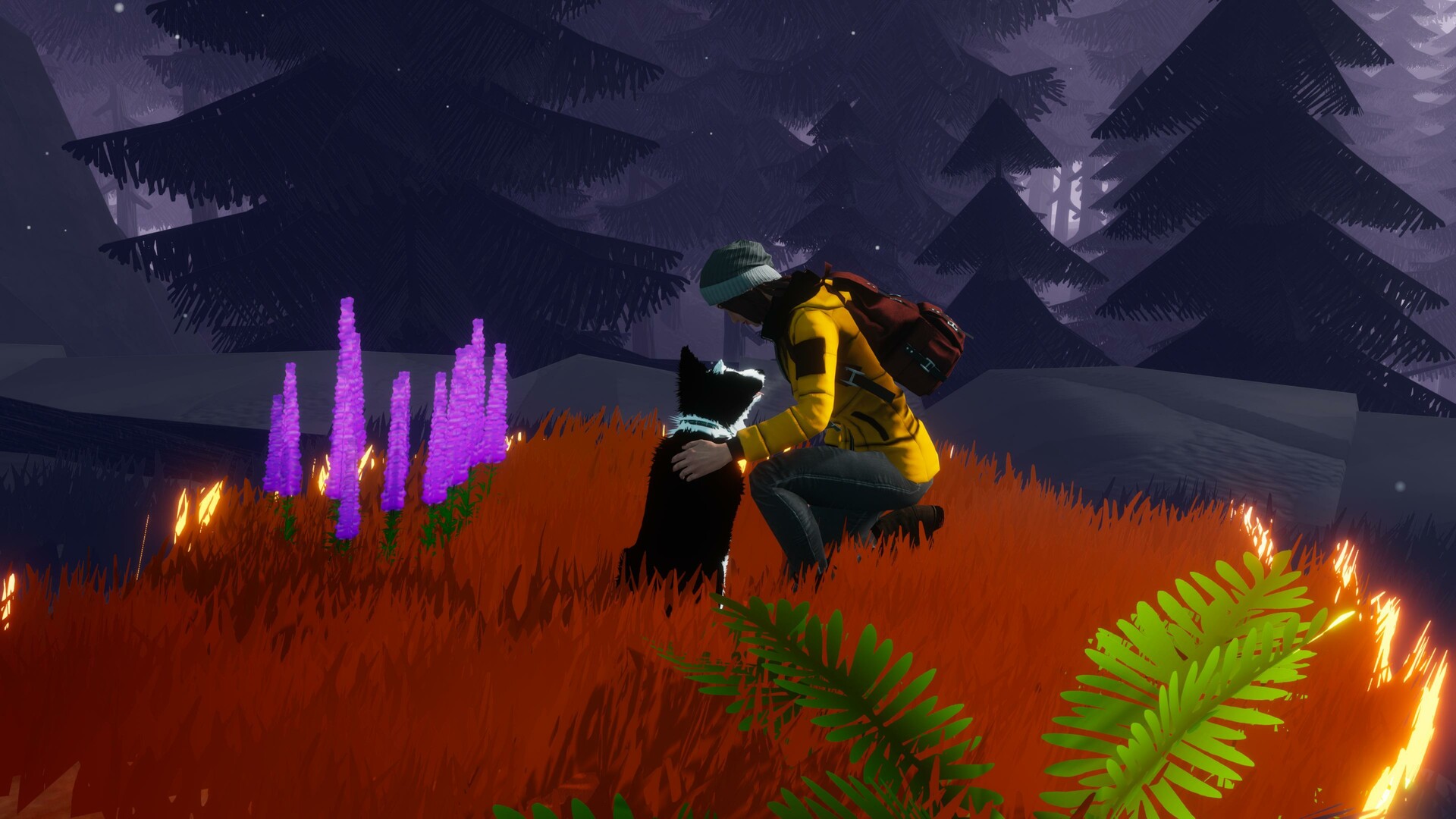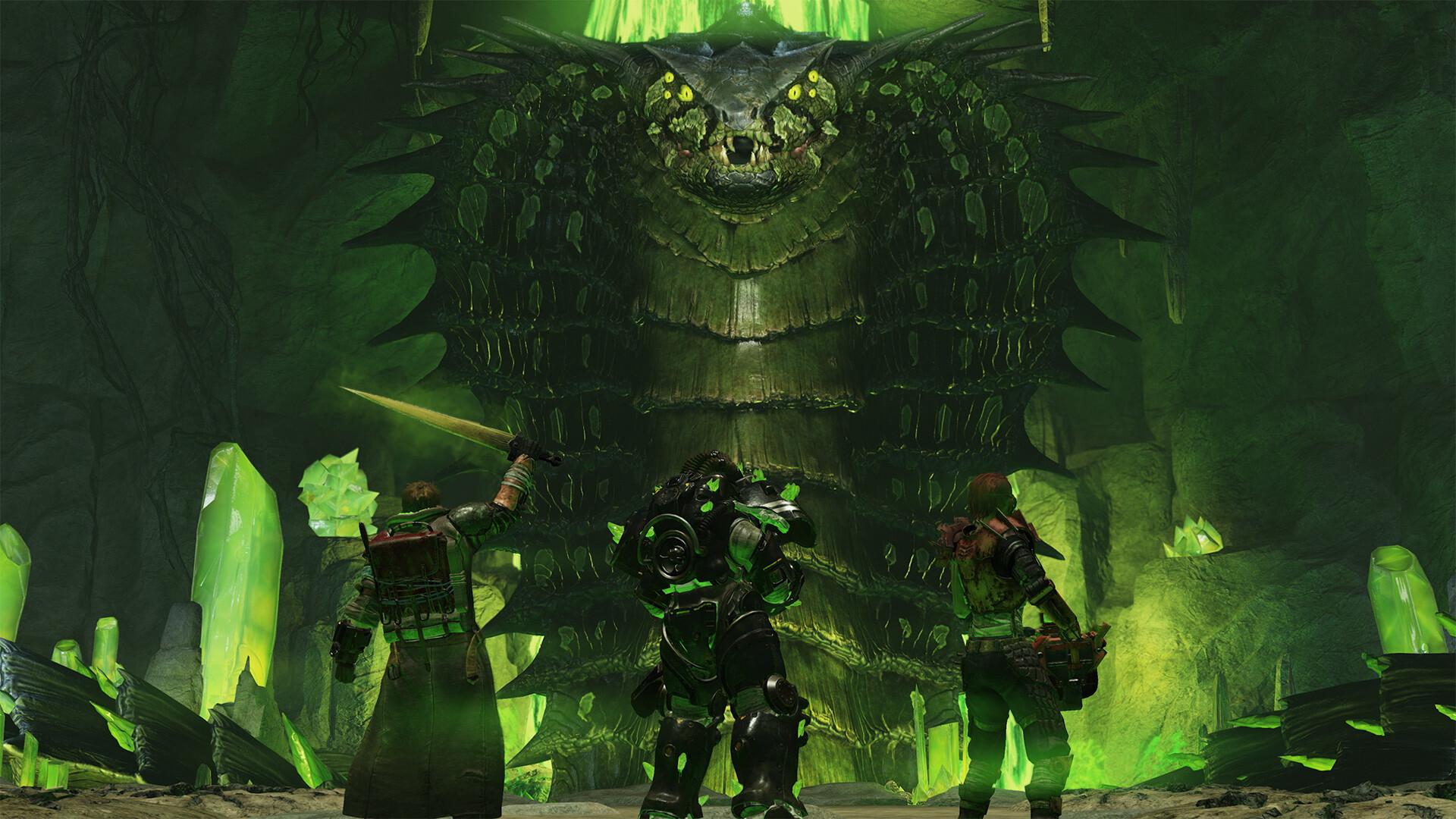
Not all who wander have lost.
Any piece of media involving a dog is bound to trigger an emotional response from me. I don’t know what it is, and I don’t know why it happens. But it’s inevitable. As soon as there is a dog and any sort of emotion, I’m usually a blubbering mess. So, when you spin a narrative that combines loss and companionship and pair it with a tail-wagging companion, I’m bound to be enchanted enough to put myself through whatever turmoil lies ahead.
Adventure game Farewell North whisks you through the Scottish Highlands, except things aren’t quite how I’d imagine them to be. Rather than being bright and luscious, the world is grey and dreary, until Chesley the border collie begins to bring colour back. There are a variety of mini games to help you achieve this, such as games of fetch or herding sheep. Not only are these minigames a fun way to shake up the standard exploration element of the game, they are a vital key in unlocking the story that unfolds the further you go.
For example, at the start of the game, while you’re running around chasing birds, your owner becomes ensnared in a ring of thorns while lost in thought about the past. The only way you can pull her out of it is by sending in the birds to distract her. This pattern repeats itself for each minigame you come across. No matter what task you’re completing, you’re doing it for the sake of your owner. Helping her through brings a little more colour back to the highlands. These patches start small, but the more you explore and the more tasks you complete, the brighter each area becomes.
This visual representation of my progress was enough to keep me wanting to work my way through the game, but the story is what kept me truly captivated. Rather than solely being a sweet tale about companionship between a woman and her dog, Farewell North puts an affecting spin on things. It’s a story that is so willing to get you emotionally invested in its four-legged protagonist, then reveals a tale of loss hidden between the lines. The further you delve, the more this opens up, and before long you’re learning the reasons why you’ve been whisked to the Scottish Highlands, and the significance the trip holds for your owner.
It feels bittersweet rather than sad, though. I never found myself emotionally drained while playing. That was a surprise, since any grief-led story involving an animal is quick to reduce me to tears. It meant I wanted to make my way through the game at a steady pace, rather than tearing the bandaid off the second things took a turn for the worse.
This was helped by the fact you’re never told where to go, and you’re encouraged to complete tasks at your own pace rather than racing to the end. Once you’ve completed the tutorial at the beginning, and the game sticks you in a canoe, there are no restrictions on where you can row first. I appreciated this approach since I knew Farewell North was going to be quite heavy, so being able to pick where I wanted to go made me feel like I at least had a bit of control. Freedom like this also made my journey feel more personal, which only reinforced my connection with the characters and their story.
So even though I went into Farewell North thinking I was due a wholesome story about companionship, I’m not disappointed with what actually unravelled. Sure, companionship does play a huge part of the adventure, but my main focus was on the way it made something as heavy as processing loss so approachable. I won’t be quick to jump back in the canoe and play through the story again—mostly for my own sake—but it’s definitely a game I’ll think about whenever I need a little extra help processing something.






